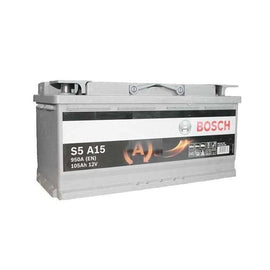There is nothing worse than suddenly getting a flat tyre! You’ve got somewhere to be, a schedule to keep but instead you’ve got to deal with a flat tyre.
But flat tyres don’t just happen on the go; they can happen while your car is on your drive too. So, what causes a flat tyre, and what can you do to prevent them?
Common Causes Of A Flat Tyre
What are the most common causes of a flat tyre, and how can you avoid them
External Objects

This is one of the hardest to avoid, because most often you may not know they have come in your car’s path until it is too late. There are many discarded objects on the road, and these can puncture your tyre.
Often the item will be in your tyre for a short while before the damage becomes apparent unless you are meticulous about checking your tyres each day, which, let’s face it, most of us don’t!
You can help to avoid some external object damage by ensuring that you are cautious during certain driving conditions and that you tend to drive on well-maintained roads.
If you do see some debris on the road, and it is safe to do so, you can try to avoid driving through it.
Routine Wear And Tear
Unfortunately, you cannot avoid this type of flat tyre, but what you can do is ensure that you have your car regularly checked out at a local service center with a good reputation, such as ours at 800-CarGuru!
You can check your own tyre pressure regularly, and ensure that you pump up the tyres when needed. This can help to prolong the life of your tyres and keep them in good order.
Extreme Heat
The Dubai climate can be scorching, and that heat can be one of the main causes of tyres to go flat.
Prolonged exposure to hot surfaces and heat can result in your tyres becoming over-inflated. This over-inflation can cause a tyre blowout or a leak.
When the weather is hot, you should be sure to check the tyre pressure before you begin any journeys.
Since most people don’t check their tyre pressure regularly, this can be a common occurrence and a costly one!
Poorly Inflated Tyres

If your vehicle’s tyres aren’t inflated to the correct pressure, this can result in a lot of damage. The damage is extensive and not just the tyres themselves.
Each manufacturer will have a recommended tyre pressure, and you should periodically check that your tyres are correctly inflated to that amount.
Over time the valve system can wear out, and when this happens, your tyres will need to be seen by a professional.
They can replace the valve system if required and ensure your tyres are at the correct pressure.
Leaking Valve System
If your tyre valve system is damaged, it will slowly leak air out over time. While this might not be noticeable initially, it can cause a lot of issues.
You can spot some issues with your valve system with a close inspection. There may be some dirt clogged in the stem, or there may be a punctureture in the stem.
Tyre and Rim Separation
Tyre and rim separation happen when your tyres get hitched against a ditch or a wall. This will cause slow leakage from the tyre. When this type of flat tyre occurs, you will need to call a professional.
For a tyre and rim separation, there are some specific tools that are required to restore the tyre on to the rim and it is best left to a professional, rather than risking further damage to the wheel itself.
Can You Fix A Flat Tyre?
It is not often that you can repair your tyres instead of replacing them. If the issue is something such as a small hole in your tread, these can be fixed with a puncture kit.
Tyres that are well maintained and regularly seen by a professional garage are more likely to stand the test of time.
If you aren’t sure when the incident happened to your tyre, and it has been used since, there is a higher risk of something dangerous occurring to your tyre.
The best thing that you can do in most cases is to have a professional take a look at your tyre and give you all of your options.
Should You Drive On A Flat Tyre?
Most of the time, you might not be aware you have a flat tyre. Most often, there isn’t always an obvious sign until the tyre has lost a more significant amount of air pressure.
Once you realise your tyre is losing pressure when you are driving, it is essential that you pull over when it is safe to do so.
In the circumstances where it is unsafe to pull over, drive very carefully and slowly until you find somewhere safe. The longer you drive on a flat tyre, the more damage to your tyre and the wheel rims.
When the tyre is completely deflated, the exposed metal will be bearing the weight of the car, and the damage can be extensive.
As soon as you notice you have a flat tyre, the general rule is you should immediately cease driving and contact a garage.
How Often Should I Check My Tyres?
Ensuring your tyres are in good working order will give you a better fuel economy and mean you are less likely to need to replace them often.
You can check your tyre pressure by:
- Unscrewing the dust cap from the wheel
- Press the tyre gauge to the valve
- Check the reading
Compare the reading to the recommended tyre pressure from the manufacturer and correct any differences between the two.
The most common unit for measuring tyre pressure is PSI, and this stands for lbs per square inch.
You should check your tyre pressure every few weeks, and if you are worried about your tyres for any reason, contact 800-CarGuru to have your car tyres checked out.





